Yes Bank’s green initiatives garner 4.2 mn impressions, 1.6 lakh engagements
Since inception in 2004, Yes Bank has believed in creating sustained value for its stakeholders, through social, economic and environmental dimensions through its ‘Responsible Banking’ ethos.
On February 15, 2018, Ministry of Environment, Forest & Climate Change (MoEFCC), Government of India, launched a nationwide campaign – called ‘Green Good Deeds’ – to sensitise Indians as well as to positively impact the environment. The campaign focuses to create awareness and inculcate simple lifestyle habits, which citizens can easily adopt in an effort to reduce the hazards of climate change and global warming.
Differentiated and out-of-the-box communication campaign and online content has been developed to promote #GreenGoodDeeds pledge. There is a dedicated section on the bank’s website encouraging people to take the green good deed pledge.
Yes Bank, through its unique community engagement initiative, Yes Community, is supporting the Government’s campaign by conducting an awareness and engagement initiative to encourage environment conscious behaviour. The initiative’s objective is not only to spread awareness, but also to create ‘Green Sainiks’, who in turn will propagate conservation in their communities.
On several important days like the World Water Day, Earth Day, International Day for Biological Diversity, and World Environment Day 2018, the bank has conducted online and offline awareness and conservation campaigns.
2018 was also the year that India was playing host to the World Environment Day, with the theme being ‘Beat Plastic Pollution’. Through its Green Good Deeds campaign, Yes Bank encouraged customers to skip the plastic in their lives with small simple steps, whilst also showcasing the initiatives that the bank has taken towards making a commitment towards a plastic-free world. All this is an engaging video format.
Over the years, Yes Bank has been supporting the Namami Gange project, and on June 2 this year, it brought together volunteers to clear up over 15 tons of waste as a part of the Yamuna clean-up drive at Kalindi Kunj Ghat.
Adgully spoke to Amit Shah, Head - Corporate Strategy and Marketing & Communication, Yes Bank, to know more about the bank’s green initiatives and how these have been helping the Bank grow its consumer engagements.
What is the strategy behind these initiatives?
As a bank we have focussed on Responsible Banking since inception. We have ensured that we engage our community towards creating awareness about the climatic changes and the various changes that are taking place in our environment. When we started off we used to do these initiative in a smaller scale like in person, our branches and community areas, which we continue to do even now; but with the power of social media our bank has large followers on these social handles and we have extended this in the sense to our social media followers and naturally the engagement we have is highly segmented and targeted.
Green Good Deeds was a nationwide campaign launched by Ministry of Environment, Forest & Climate Change (MoEFCC) on February 15, 2018 to sensitise citizens of the country towards conservation of environment. A few corporate, including Yes Bank, came forward to support this initiative. Yes Bank has taken up this initiative through its unique community engagement initiative, Yes Community. The Bank wanted to create awareness amongst the citizens and make ‘caring and conservation of environment’ a part of their behaviour. We combined both social engagements along with on ground community engagement. The idea was to popularise the initiative by the Government. Through engagement by our branches we encouraged people to take up Green Good Deeds pledge which is list of all possible activities one should take up to become a ‘Green Sainik’. We wanted to create more ‘Green Sainiks’, who will not only follow the pledge but also will in turn propagate conservation in their communities.
How is Yes Bank educating the people about plastic pollution and avoid using plastic?
We have done a couple of things for this. Yes Bank’s strategy was fully aligned with UN’s theme of the year – #BeatPlasticPollution. On important days like Earth Day and World Environment Day, the Bank sensitised people through online and offline conservation campaigns. Firstly, we have spread the message online on the digital platform, through which we have got a very good impressions and engagement and we also made people take pledges online. Secondly, we also did a lot of on ground activities. We went out and spoke to people about this issue and we made them take a pledge because once you take a pledge you are far more convinced and motivated to live through it. The popularity of this entire initiative was around the World Environment Day, Earth’s Day, Water Day, etc., and due to this aspect, the reach was extremely good. For instance, on Earth Day and World Environment Day we ran a video about damage done by plastic so far and encouraged people to take up Green Good Deeds to avoid the use of plastic. Video also showcased initiatives by Yes Bank to become a Green Bank. We also did a Twitter poll asking our audience that how many people are adhering to the plastic ban in Maharashtra and we got helpful insights.
Yes Bank conducted on-ground activities monthly like in schools, the branches went and spoke about the importance of each pledge in Green Good Deeds pledge and children took this pledge, sensitisation workshops on climate change.
How is Yes Bank partnering with the Swachh Bharat Abhiyan?
We have been a prominent partner of Namami Gange project, where we took about 250 volunteers for a waste collection drive and collected around 15 tonnes of water as a part of the Yamuna clean-up drive at Kalindi Kunj Ghat. We have utilised our network aspect as we have our ATMs and branches located everywhere around the country, which becomes a very important aspect in creating awareness for initiatives like these. Through our 1,700+ network of ATMs, we will sensitise people on ‘Say Yes to Clean Ganga’. In addition to this campaign, we conducted cleaning drive and volunteering programme for Juhu beach cleaning drive, where we took a lot of people for this initiative. We also undertook this initiative of planting samplings in 7 to 8 odd cities, including Mumbai.
Also, various tree plantation drives were also conducted in areas such as Hyderabad, Vizag, Vijayanagar, Ahemdabad and this month in Mumbai (Van Mahotsav).
How has the campaign been differentiated?
For us, this has been a classical case of 360 degree campaign, because we have done it online and offline at the same time and received overwhelming response. Online definitely has been very targets specific followed by on-ground engagements in and around that area. For something like this, Twitter is naturally a very interesting platform. For each awareness drive, the Bank conducted online and offline activities. Many online campaigns were designed in a way to reach out to as many people as possible and generate maximum awareness.
We experimented with innovative content delivery formats - Like we were the first to do a video conversation ad on Twitter on World Water Day, which was recognised by Brand Equity as one of the top 5 brands who have generated most engagement on Twitter that week.
On Earth Day we were the first brand to conduct video polls on Twitter which got a high engagement rate of more than 3 per cent rate (vis-à-vis a 1 per cent engagement which is usually considered very good for a non political and non religious activity).
Which is the creative agency and what was the brief given to the agency?
The entire creative aspect was done in-house. Though we have creative agencies for traditional and digital media, we ran this campaign entirely in house. Biggest advantage of having an in-house studio for creatives is that the turnaround time short; this is very important for such activities because you modify things on the go based on the reactions, which happens when we do it in house. We have built a full-fledged studio, internally for online, digital, social and video to support us for such campaigns.
How has the response been for your initiatives conducted in the digital space?
It has been wonderful; the number of engagements that we got are tremendous in terms of the impressions, views and engagements. It happened at a very effective RoI across all our platforms such as Twitter, Facebook, etc., with 4.2 million impressions and almost 1.6 lakhs engagements, most of these engagements translated into traffic on our website. As I had mentioned earlier, 3.8+ per cent is the actual percentage of engagements. We are very content rich organisation and we see to it that people are able to engage to the content that we create so our intention is always to create good rich content.


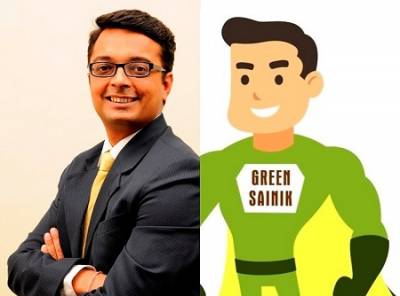
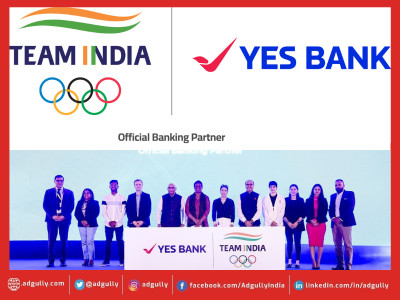
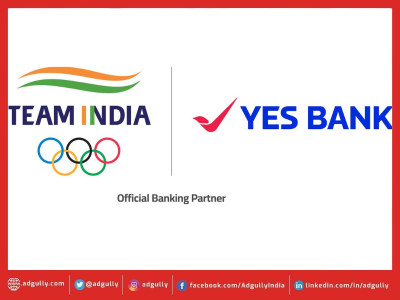
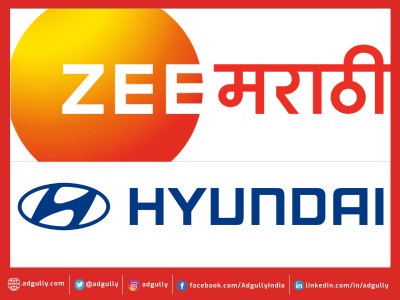
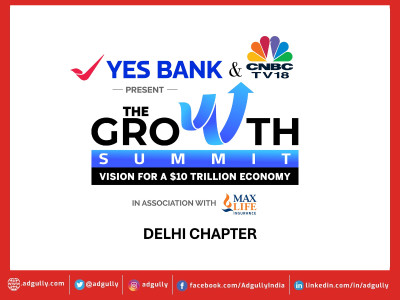
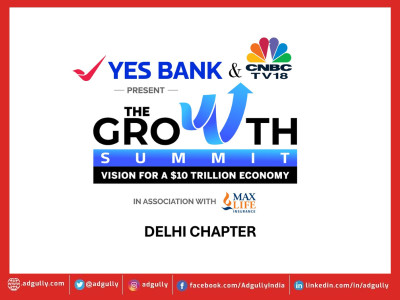
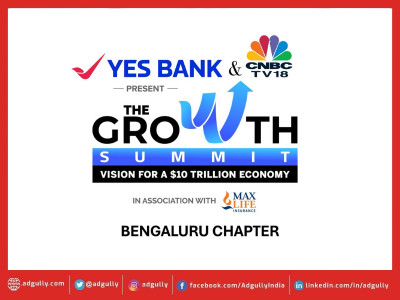


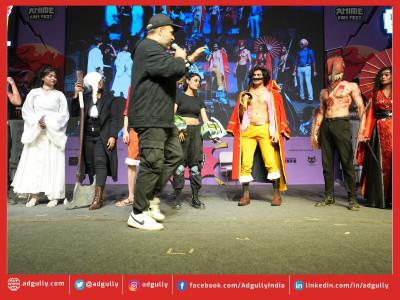

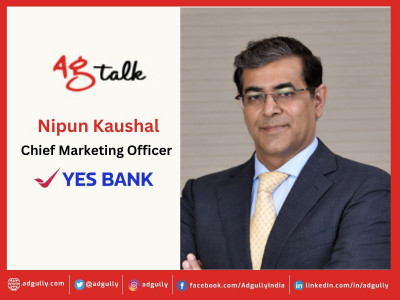


Share
Facebook
YouTube
Tweet
Twitter
LinkedIn